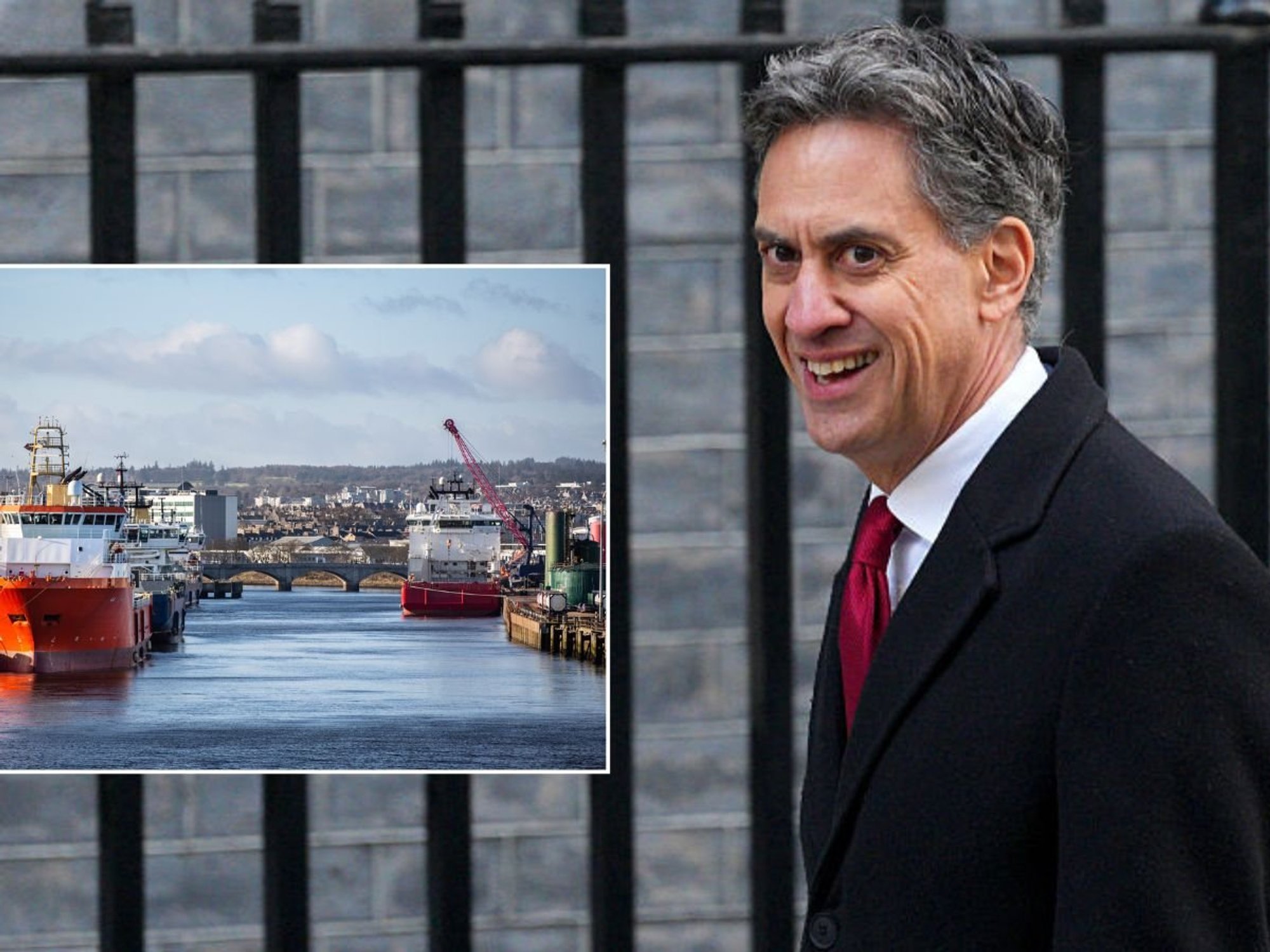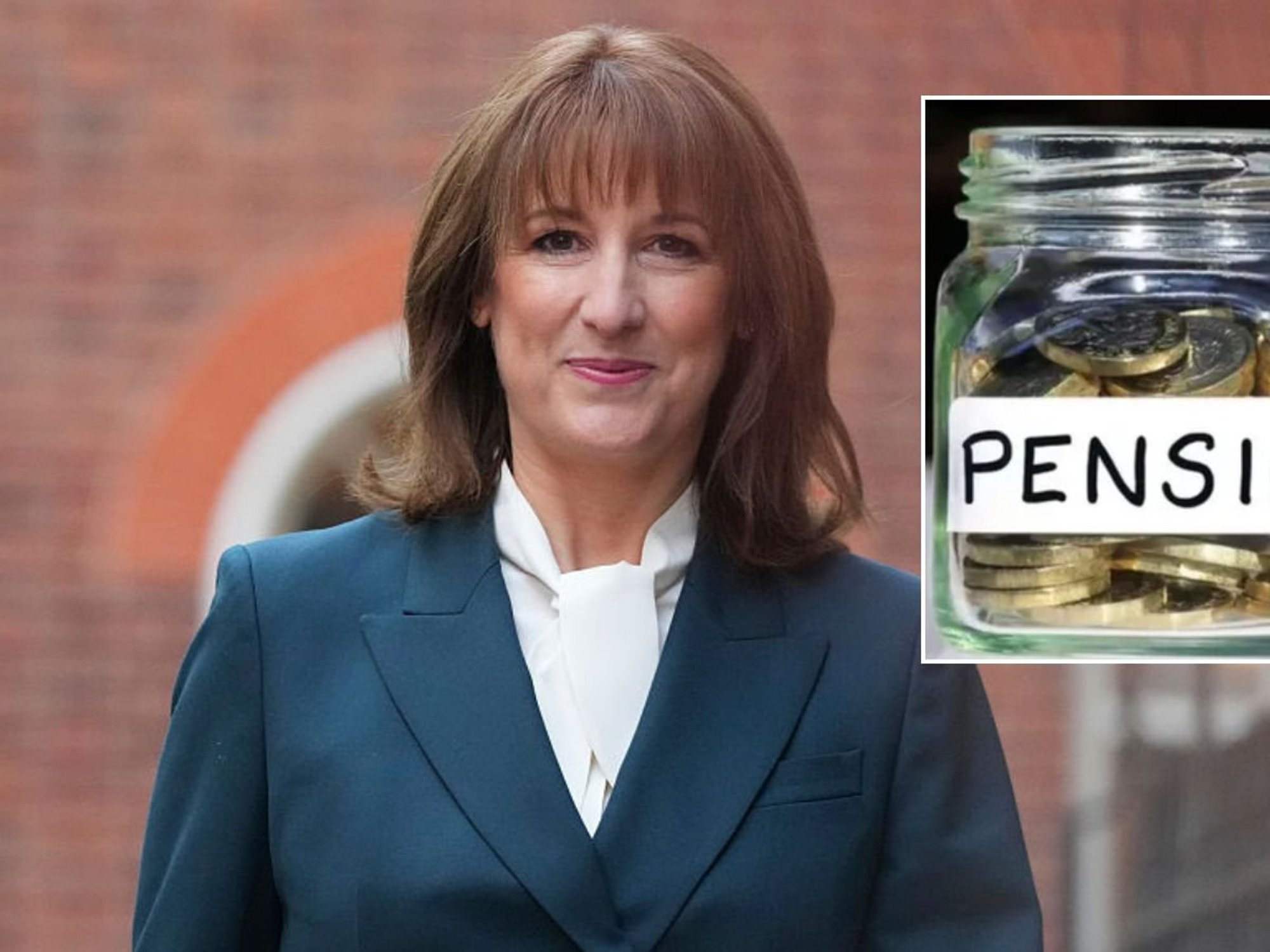State pension age could rise to 70 as DWP launches review into 'merits' of hike under Labour reforms

State pension age rise ‘almost inevitable’: Ann Widdecombe issues warning as Denmark raises the bar |
GB NEWS

The state pension age is currently 66 years old but a DWP review could see this threshold raised substantially
Don't Miss
Most Read
A Labour Government-commissioned review is exploring whether Britain's state pension age should automatically increase in line with rising life expectancy, potentially pushing the state pension age to 70.
The review, headed by Suzy Morrissey on behalf of Department for Work and Pensions (DWP) Secretary Liz Kendall, will assess the "merits" of implementing automatic adjustments to strengthen Government finances.
This examination into the state pension will analyse international examples where pension eligibility is directly linked to demographic shifts, including Denmark's system which recently established 70 as its retirement threshold.
Currently, Britain's state pension age stands at 66, with planned increases to 67 beginning next year and a further rise to 68 scheduled between 2044 and 2046.
**ARE YOU READING THIS ON OUR APP? DOWNLOAD NOW FOR THE BEST GB NEWS EXPERIENCE**

The state pension age could hit 70 under a new DWP review
|GETTY
Ms Morrissey's call for evidence, which was launched by the DWP earlier this week (August 18), identifies automatic adjustment mechanisms as a central focus of the investigation.
Denmark has linked its official pension threshold to demographic trends since 2006, becoming one of nine OECD nations adopting such mechanisms.
The Danish system restricts retirement duration to an average of 14.5 years, meaning pension eligibility advances by twelve months for each year of increased longevity.
This contrasts with Britain's current framework, which aims for future cohorts to spend approximately one-third of their adult years receiving state support.
Do you have a money story you’d like to share? Get in touch by emailing money@gbnews.uk.
 DWP minister Liz Kendall has launched a new Pensions Commission | PA
DWP minister Liz Kendall has launched a new Pensions Commission | PAFurthermore, Ms Morrissey indicated her analysis would encompass similar schemes operating in Finland, Italy and the Netherlands, where pension systems automatically respond to demographic shifts.
The New Zealand-born reviewer acknowledged that whilst British life expectancy at 66 continues climbing, improvements have significantly lagged behind projections made ten years ago, particularly following pandemic-related reversals.
Government expenditure on state pensions has surged by 19 per cent during the past decade and 70 per cent across two decades when adjusted for inflation.
According to Ms Morrisey, she will formulate her proposals "in light of the long-term demographic pressures the country faces", with final recommendations anticipated in several years.
MEMBERSHIP:
- Labour's stronghold crumbles in double election blow as Keir Starmer rocked by shock result - but who won?
- Bournemouth is just the beginning. Vigilante groups are coming to a town near you - Renee Hoenderkamp
- Rachel Reeves just gifted Richard Tice her chancellorship in 24 hours. Inheritance tax does pay - Kelvin MacKenzie
- POLL OF THE DAY: Is it in Britain's interests to show solidarity with Ukraine? VOTE NOW
- Want to stop Britain from becoming one big Bradford? The answer lies 85 miles off the coast - Colin Brazier
The triple lock mechanism, which ensures annual pension increases of at least 2.5 per cent, has intensified fiscal pressures on successive administrations.
Former Chancellor Jeremy Hunt previously sought to advance the transition to age 68 into the late 2030s but abandoned these proposals after declining longevity projections undermined the rationale.
Current forecasts suggest a 66-year-old man in 2050 will reach 87, down from 90 based on 2014 calculations. Former pensions minister Sir Steve Webb cautioned that implementing automatic formulas could generate significant instability for financial planning.
He warned: "Having a completely automatic formula to move from changes in life expectancy to changes in state pension age could cause chaos for people's financial planning."
LATEST DEVELOPMENTS:
 Britons are concerned about the rise in the state pension age | GETTY
Britons are concerned about the rise in the state pension age | GETTYThe partner at law firm LCP highlighted how pension age could fluctuate by up to eight years based on whether 2012 or 2014 population data was utilised.
"Every time the population projections are updated, this could move the dates for pension age changes by up to a decade, which would make it impossible for people to plan for their retirement finances," he explained.
Mr Steve argued that rigid formulas would generate greater uncertainty than approaches incorporating broader considerations and human judgement.
Catherine Foot, the director of the Standard Life Centre for the Future of Retirement emphasised that any pension age increases must be accompanied by measures supporting extended working lives.
She noted: "Working until even the current state pension age is not easy for everyone."
Government data reveals that earlier pension age increases to 66 during the 2010s resulted in 89,000 prospective retirees claiming sickness benefits due to inability to work.
Ms Foot warned: "Using average life expectancy as the yardstick with which to determine the state pension age inevitably increases inequality and poverty among the pre-retirement population."
More From GB News










